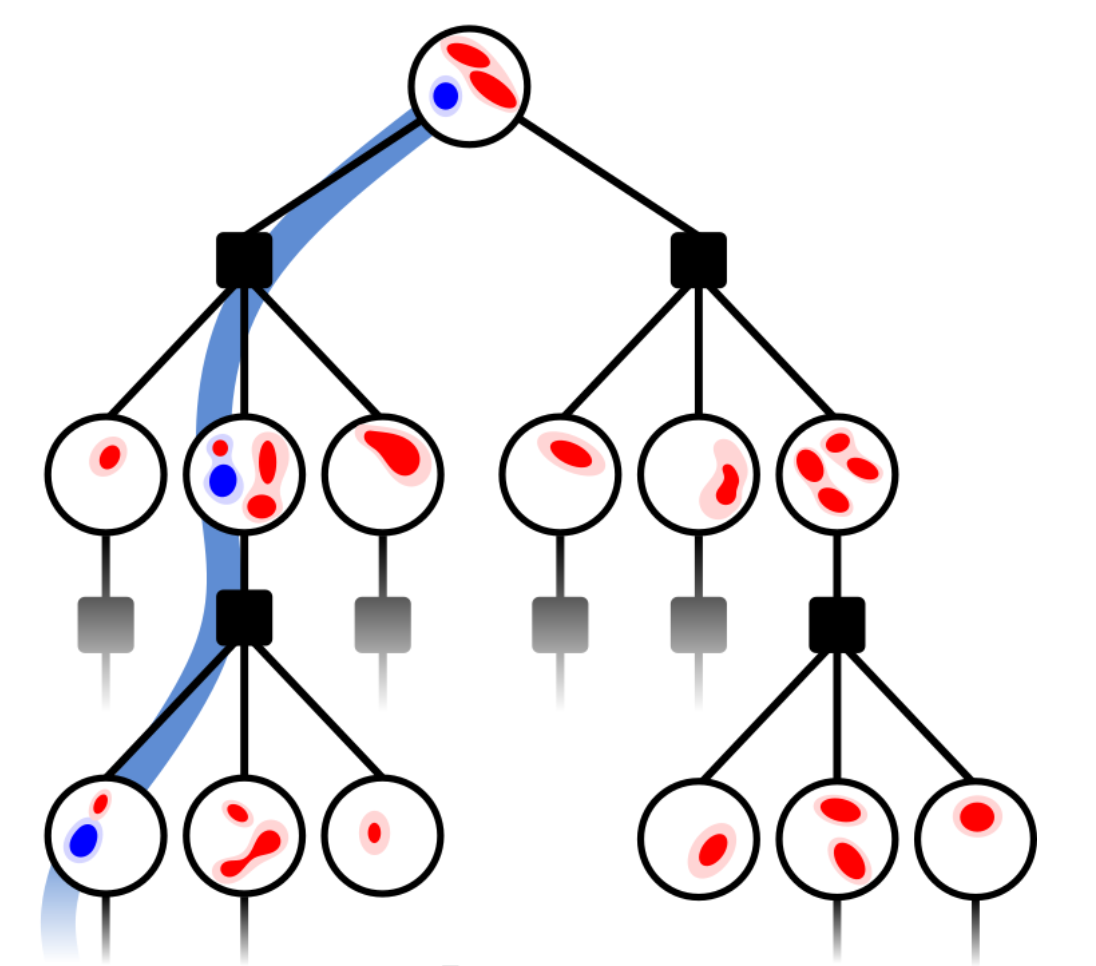Related Publications:
Journal Articles
- M. Barenboim, M. Shienman, and V. Indelman, “Monte Carlo Planning in Hybrid Belief POMDPs,” IEEE Robotics and Automation Letters (RA-L), no. 8, Aug. 2023.
- M. Barenboim, I. Lev-Yehudi, and V. Indelman, “Data Association Aware POMDP Planning with Hypothesis Pruning Performance Guarantees,” IEEE Robotics and Automation Letters (RA-L), no. 10, Oct. 2023.
- O. Shelly and V. Indelman, “Hypotheses Disambiguation in Retrospective,” IEEE Robotics and Automation Letters (RA-L), no. 2, Apr. 2022.
- V. Tchuiev and V. Indelman, “Distributed Consistent Multi-Robot Semantic Localization and Mapping,” IEEE Robotics and Automation Letters (RA-L), no. 3, Jul. 2020.
- S. Pathak, A. Thomas, and V. Indelman, “A Unified Framework for Data Association Aware Belief Space Planning and Perception,” International Journal of Robotics Research (IJRR), no. 2-3, 2018.
Technical Reports
- T. Lemberg and V. Indelman, “Online Hybrid-Belief POMDP with Coupled Semantic-Geometric Models and Semantic Safety Awareness,” 2025.
- S. Pathak, A. Thomas, A. Feniger, and V. Indelman, “Robust Active Perception via Data-association aware Belief Space Planning,” 2016.
Theses
- M. Barenboim, “Simplified POMDP Algorithms with Performance Guarantees,” PhD thesis, Technion - Israel Institute of Technology, 2024.
- M. Shienman, “Structure Aware Probabilistic Inference and Belief Space Planning with Performance Guarantees ,” PhD thesis, Technion - Israel Institute of Technology, 2024.
- O. Shelly, “Hypotheses disambiguation in retrospective for robust perception in ambiguous environments,” Master's thesis, Technion - Israel Institute of Technology, 2022.
- A. Thomas, “Incorporating Data Association Within Belief Space Planning For Robust Autonomous Navigation,” Master's thesis, Technion - Israel Institute of Technology, 2017.
Book Chapters
- M. Shienman and V. Indelman, “Nonmyopic Distilled Data Association Belief Space Planning Under Budget Constraints,” in Robotics Research, Springer, 2023.
Conference Articles
- M. Shienman and V. Indelman, “D2A-BSP: Distilled Data Association Belief Space Planning with Performance Guarantees Under Budget Constraints,” in IEEE International Conference on Robotics and Automation (ICRA), *Outstanding Paper Award Finalist*, May 2022.
- T. Lemberg and V. Indelman, “Hybrid Belief Pruning with Guarantees for Viewpoint-Dependent Semantic SLAM,” in IEEE/RSJ International Conference on Intelligent Robots and Systems (IROS), Oct. 2022.
- M. Shienman and V. Indelman, “Nonmyopic Distilled Data Association Belief Space Planning Under Budget Constraints,” in International Symposium on Robotics Research (ISRR), Sep. 2022.
- V. Tchuiev, Y. Feldman, and V. Indelman, “Data Association Aware Semantic Mapping and Localization via a Viewpoint Dependent Classifier Model,” in IEEE/RSJ International Conference on Intelligent Robots and Systems (IROS), Nov. 2019.
- S. Pathak, A. Thomas, and V. Indelman, “Nonmyopic Data Association Aware Belief Space Planning for Robust Active Perception,” in IEEE International Conference on Robotics and Automation (ICRA), May 2017.
- S. Pathak, A. Thomas, A. Feniger, and V. Indelman, “Towards Data Association Aware Belief Space Planning for Robust Active Perception,” in AI for Long-term Autonomy, workshop in conjunction with IEEE International Conference on Robotics and Automation (ICRA), May 2016.
- S. Pathak, A. Thomas, A. Feniger, and V. Indelman, “DA-BSP: Towards Data Association Aware Belief Space Planning for Robust Active Perception,” in European Conference on Artificial Intelligence (ECAI), accepted for short paper presentation, Sep. 2016.
- S. Pathak, S. Soudjani, V. Indelman, and A. Abate, “Formal and Data-association aware Belief Space Planning,” in Eighth European Starting AI Researcher Symposium (STAIRS), co-located with European Conference on Artificial Intelligence (ECAI), Sep. 2016.







